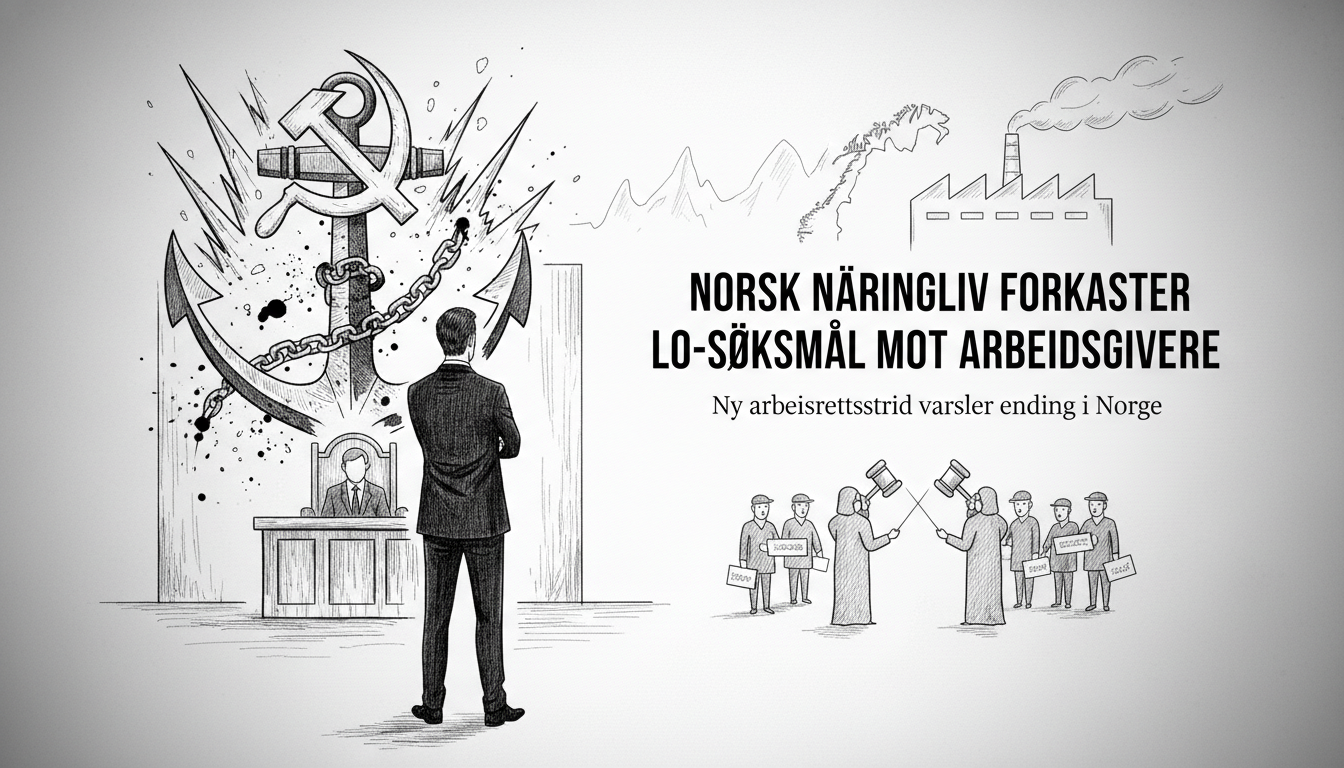A major Norwegian business organization has launched a sharp critique against the country's largest labor union. The criticism follows legal warnings sent to companies about wage claims from part-time employees.
Vegard Einan leads NHO Service og Handel, which represents service and retail sector employers. His organization has 152,600 employees across member companies. Many workers hold part-time positions.
Einan confirmed that multiple member companies received legal warnings. These notices came from lawyers within LO's legal department. They represent part-time employees seeking wage claims.
The business leader described the situation as spectacular and incomprehensible. He expressed strong opposition to the labor union's legal approach.
LO maintains that their lawyers simply assist members with ordinary wage claim cases. They deny any improper legal tactics.
This conflict emerges following two controversial EU court decisions. The European rulings have influenced labor practices across member countries.
Norway's labor market operates through centralized negotiations between employer and employee organizations. NHO represents business interests while LO advocates for workers. Their relationship typically involves collective bargaining rather than individual lawsuits.
The service and retail sector employs many part-time workers across Norway. These positions often involve flexible hours but sometimes face wage disputes.
Legal actions between major labor organizations remain relatively uncommon in Norway. The country traditionally prefers negotiated settlements through established channels.
This development could signal changing dynamics in Norwegian labor relations. Increased legal confrontations might replace traditional negotiation methods.
International readers should understand that Norway maintains strong worker protections. The country has comprehensive labor laws and active union participation.
The situation raises questions about how EU decisions affect non-EU members like Norway. Despite not being an EU member, Norway follows many EU regulations through the EEA agreement.
What does this mean for businesses operating in Norway? Companies might face increased legal challenges from union-backed employees. The traditional cooperative model could be shifting toward more adversarial approaches.
For workers, this represents both opportunity and risk. Legal actions might secure better wages but could strain the broader labor-management relationship.
The outcome could influence similar cases across Nordic countries. Sweden and Denmark watch Norwegian labor developments closely given their similar systems.
Both organizations will likely continue discussions behind closed doors. Public statements often serve as negotiation tactics in Norwegian labor disputes.
The coming weeks will reveal whether this escalates or resolves through traditional mediation channels.

